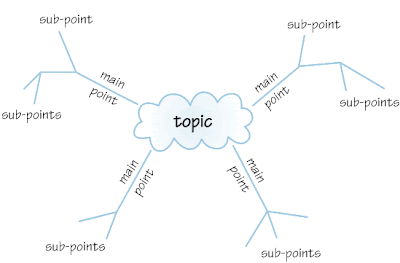Term II:
Time for a goal? Increase your mark by 10%? Pass term II? What can you do or what can you change that will help you to: (a) better understand the material; (b) increase your success? Can you schedule more remed or tutorial?
All groups, including repeaters, are writing their unit exam this week (Monday, Day 3 - Orange, Red, Purple and Tuesday, Day 4 - Blue). Hopefully, you took advantage of an extra week and a four-day weekend. Perhaps some of you used the SQ3R (Survey, Question, Read, Recite, Review) method? See below.
Remember to keep the big picture in mind. Scan over your notes. Examine each time period. Who came to Quebec? Why did they come? From where? How did migration flows in any of the periods affect Quebec's society and territory? How did various groups of people change Quebec? Think about cause-effect. Think about Quebec's evolution or about continuity from 1500-2000. Make yourself a timeline of population & settlement, 1500-2000. Place migration flows and their effects on the timeline so that you can see things chronologically... Don't re-read the textbook. Examine (in your text and in your notes) graphs, charts, timelines, maps.
The exam consist of two parts:
Part 1: Three sections with 20 short answer questions based on documents. It is out of 37 marks. The questions cover all four periods: Aboriginal, French, British and Canadian. Half of your studying should be spent on the Canadian period. 10/20 questions cover this period (1867-2010); your essay is also about the Canadian period (part II). The ten other short questions are divided equally in number between the Abor, Fr., and British periods. Two of them cover all the periods (chronological order, for example).
Part II: A 250-word essay about demographic changes in Quebec over the course of the 20th century (1900-1999. It is also based on documents. It is out of 12 marks.
Survey: Get an overall picture of what you're going to study BEFORE you study. It's like looking at a road map before going on a trip. If you don't know the territory, studying a map is the best way to begin.
Question: Ask questions for learning. The important things to learn are usually answers to questions. Questions should lead to emphasis on the what, why, how, when, who and where of study content. Ask yourself questions as you read or study. As you answer them, you will help to make sense of the material and remember it more easily because the process will make an impression on you. Those things that make impressions are more meaningful, and therefore more easily remembered.
Read: Reading is NOT running your eyes over a page of notes or a textbook. When you read, read actively. Read to answer questions you have asked yourself. Pay special attention to bold or italicized print. This material should receive special emphasis. When you read, be sure to read everything, including tables, graphs and illustrations. Often tables, graphs and illustrations can convey an idea more powerfully than written text.
Recite: When you recite, you stop reading periodically to recall what you have read. Try to recall main headings, important ideas of concepts presented in bold or italicized type, and what graphs, charts or illustrations indicate. Try to develop an overall concept of what you have read. Put it into your own words and thoughts. Try to connect things you have just read to things you already know. When you do this periodically, the chances are you will remember much more and be able to recall material for papers, essays and tests.
Review: A review is a survey of what you have covered. Rereading is an important part of the review process. Reread with the idea that you are measuring what you have gained from the process. During review, it's a good time to go over notes you have taken to help clarify points you may have missed or don't understand. The best time to review is when you have just finished studying something. Don't wait until just before an examination to begin the review process. Before an examination, do a final review. If you manage your time, the final review can be thought of as a "fine-tuning" of your knowledge of the material. Thousands of high school and college students have followed the SQ3R steps to achieve higher grades with less stress.
Here's a visual of SQ3R:




